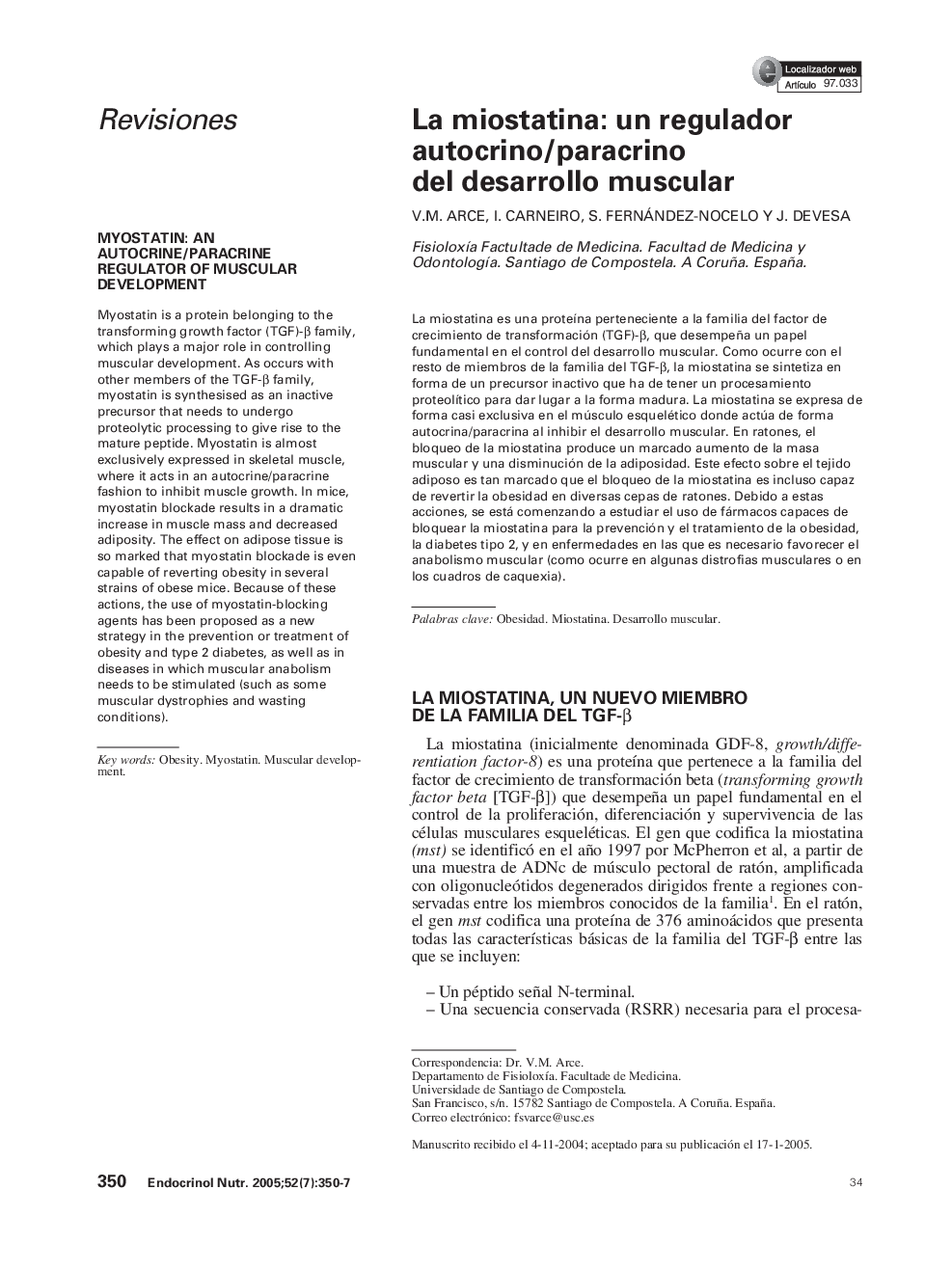| Article ID | Journal | Published Year | Pages | File Type |
|---|---|---|---|---|
| 9102180 | Endocrinología y Nutrición | 2005 | 8 Pages |
Abstract
Myostatin is a protein belonging to the transforming growth factor (TGF)-β family, which plays a major role in controlling muscular development. As occurs with other members of the TGF-β family, myostatin is synthesised as an inactive precursor that needs to undergo proteolytic processing to give rise to the mature peptide. Myostatin is almost exclusively expressed in skeletal muscle, where it acts in an autocrine/paracrine fashion to inhibit muscle growth. In mice, myostatin blockade results in a dramatic increase in muscle mass and decreased adiposity. The effect on adipose tissue is so marked that myostatin blockade is even capable of reverting obesity in several strains of obese mice. Because of these actions, the use of myostatin-blocking agents has been proposed as a new strategy in the prevention or treatment of obesity and type 2 diabetes, as well as in diseases in which muscular anabolism needs to be stimulated (such as some muscular dystrophies and wasting conditions).
Keywords
Related Topics
Life Sciences
Biochemistry, Genetics and Molecular Biology
Clinical Biochemistry
Authors
V.M. Arce, I. Carneiro, S. Fernández-Nocelo, J. Devesa,
